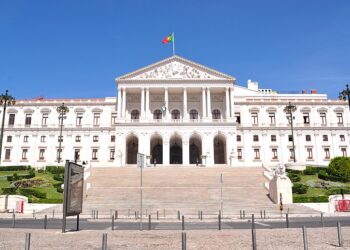Brussels – The European controversy over the role of TikTok during the presidential election campaign in Romania has not subsided. The unexpected victory in the first round of the far-right (populist, anti-system, and pro-Putin) candidate Călin Georgescu has ignited the polemic regarding the social media’s responsibility in the election outcome, given the massive use that the winning Georgescu made of the platform in the campaign.
After the Romanian Constitutional Court validated the result of the vote, for which the runoff between Georgescu and the free candidate Lasconi will be on December 8, the crux of the problem for the EU is to understand whether TikTok has met the obligations of the digital services regulation (DSA) or really favoured the independent candidate.
The need for transparency and “mitigating risks related to elections, media pluralism, and civic discourse, which some recommendation systems could amplify” had already alarmed the European Commission in October. The result of the Romanian presidential elections has made the debate even more impending. Hence, the Committee on Internal Market and Consumer Protection (IMCO) met today (Dec. 3) with representatives of TikTok to discuss the platform’s membership in the European DSA and how obligations related to elections are handled.
“TikTok has nothing to do with Georgescu”
The company’s CEO had been explicitly invited by Renew Liberal Leader Valerie Hayer to clarify her “social empire’s” position on the issue but declined, leaving the onus of answering the committee’s questions to Caroline Greer, director of public policy at TikTok, and Brie Pegum, global head of product, authenticity, and transparency.
Assurances about security and transparency from social media have been widely debated. Systemic risks, related to how content is recommended, are one of the most relevant elements for the DSA, which aims, among other objectives, to protect users. The regulation requires large social platforms to disclose information on transparency and asks them to proactively address illegal content and risks to society to safeguard democratic processes.
On misinformation, Pegum immediately denied any form of privilege given to Georgescu: “All candidates for the presidential elections in Romania were identified in our system; there was no difference between candidates from a party or independents.”
TikTok’s policy on elections would prevent paid content promotions, as well as political advertising or fundraising by parties to avoid interference that could “hinder a voter’s ability to make an informed decision.” Based on these guidelines, TikTok’s position was stark since Georgescu was labelled a “politician” and received the same treatment as his opponents.
Perplexity among MEPs
MEPs are not letting up. Representatives of the platform were asked to “account for the use of algorithms and its moderation policies, ensuring the transparency of its recommendation system in relation to recent electoral processes in Europe,” by S&D MEP Laura Ballarin Cereza.
For now, we are talking about Romania, but this topic could hold sway in the face of any European election. Rules must be applied to social media in a timely manner, especially regarding the content proposed, which must be verified. Countering disinformation does not come through censoring certain political parties or reducing the plurality of content but through monitoring social content. And, in the case of TikTok, the risk of turning its sounding board into a parable for fake news is likely to be very high.
Returning to the election discourse, TikTok’s Greer explains, “There are elections all the time; we have our experts on the ground, providing the political context and particular situations that apply to that specific situation.” In Romania, too, the social has put its team of experts in place, including those responsible for filtering verified information.
From TikTok comes the outright denial of responsibility for favouring one candidate over others by not applying for the DSA. This is a view embraced by some dissenting voices in the debate, who take a stand in favour of the social media, arguing that election results simply express the will of the citizens. In general, much dissatisfaction hovers in the committee over the responses received, which seem “friendly and polite” but not sincere, and many MEPs do not really seem to believe in the “innocence” of TikTok.
English version by the Translation Service of Withub









